There’s nothing quite like a group of people laughing at racism.
Story by Anna Maria Ward
Photos by Kristin Evans
However, the merriment of “The Mikado: Reclaimed” audience members is markedly short-lived. After an opening number of shuffling, bowing, cheesy grins, martial arts displays and frantic fan-waving, the music ceases. Giggles echoing around The VORTEX Theater abruptly die out as the now-unsmiling “Reclaimed” performers glare pointedly at the audience. Every spectator realizes that their amusement aptly substantiates one of the show’s many heartbreaking messages: anti-Asian racism is still alive and well today, and it’s most definitely not funny.
Racism sparked the creation of “The Mikado: Reclaimed.” The production is an adaptation of “The Mikado,” the ninth operatic work of theatrical duo Gilbert and Sullivan. Originally opened in London in 1855, “The Mikado” was met with overwhelming popularity, and over 150 years later, it lives on as the most frequently performed Savoy, or Victorian-era comedic opera. However, the Gilbert and Sullivan opera’s farcical qualities exist at the expense of Asian-Americans. By employing racist practices such as white actors in yellowface, (the practice of non-Asian actors applying heavy makeup to appear Asian), and character names such as “Yum-Yum,” the supposedly comedic opera not only misrepresents but dehumanizes Asian individuals.
This blatant cultural perversion is what inspired “Reclaimed” director kt shorb to recover and retell the Asian-American narrative. “It kind of felt like a dare,” shorb says. “Anyone can do a racist show, but no one is exempt from being responsible for what they do. Creative people are responsible for what they make. You can’t complain if someone gets offended by your work.”
In addition to confronting the under-discussed and often undermined topic of anti-Asian racism, “The Mikado: Reclaimed” also explores other issues such as sexual abuse, LGBTQ discrimination, internment camps and Islamophobia. Set in a quarantine camp (Q-Camp) in the future, “Reclaimed” examines the lives of six Asian prisoners and one Muslim captive as they are forced to reside in inhumane accommodations. The Q-mates are forced to feign artificial cheer through racist musical numbers, which are broadcast as the camp’s entertainment. Between numbers, a poignant silence — broken only by terrified shushes when any of the characters dare to utter a sound — speaks volumes as the “Reclaimed” performers wordlessly construct a world of fear, pain and human resilience.
A bleak daily routine unfolds as Q-Mate 24111 (played by JooHee Ahn) is regularly led away to perform her duties as the “High Executioner’s” sex slave. Meanwhile, Q-Mate 00072 (portrayed by Laura J. Khalil) prays in secret even as her identification patch is notably branded with the Islamic star and crescent. An icy shiver ripples through the audience as the Q-mates eerily murmur Gilbert and Sullivan’s familiar line, “To sit in solemn silence on a dull, dark dock in a pestilential prison with a life-long lock…” The parallels between this original “Mikado” quotation and the silent horror of the Q-mates’ incarceration only becomes more clear as “Reclaimed” progresses. Meanwhile, unlawful love, forbidden words and festering emotions swirl uneasily beneath the looming oppression of the High Executioner, whose power is visibly embodied by the glowing red light emanating from electrocution-prone trackers embedded in each Q-mate’s arm.
As tragedy, intolerance and betrayal ensues, and blood and rose petals mingle hauntingly on the Q-Camp floor, one cannot help but be reminded of the political discord and grim newsflashes that have been frequenting headlines of late: women in the entertainment industry being forced to work with their abusers, calls to arms against those of Arab descent, and political crusades aimed at rounding up and shutting out immigrants. “The Mikado: Reclaimed” is a direct reflection of the undeniable turmoil present in society today.
Perhaps one of the most obvious examples of political commentary in “The Mikado: Reclaimed” is the actual setting. In 1942, amidst the mass paranoia caused by World War 2, over 127,000 people of Japanese descent were rounded up and imprisoned without due process of law in internment camps. “Reclaimed” serves as a chilling reminder that although the internment has been acknowledged as an error, government relocation has never been deemed unconstitutional.
“The Mikado: Reclaimed” is as profound as it is heartrending. Stirring harmonies soar from the lips of its talented cast; a multimedia set and a few special effects heighten dramatic tension without becoming gaudy. In a lovely display of artistic extremes, modest bits of crimson splash against monochrome and even the slightest of sounds shatters deafening silence. Ultimately, the cast members must be praised for both their unerring efficacy as an ensemble and their individual skill as actors. The sheer subtlety and specificity each performer applied to their every action was not only positively mesmerizing in the VORTEX’s intimate space, but absolutely integral in the formation of the believable human relationships that unfolded onstage. Gilbert and Sullivan’s piece was truly reclaimed.
However, despite the Mikado’s many shortcomings, the “Reclaimed” cast does not wish to erase the original work altogether. Cast member Rachel Steed, who plays Q-Mate 06981, expressed the overarching idea of “The Mikado: Reclaimed.” “We hope that if you’re a Gilbert and Sullivan fan, this opens your mind to new staging and performance possibilities for their gorgeous works because their music and their lyrics are obviously, as we all know, beautiful,” Steed says. “But just because something’s always been done doesn’t mean it has to keep being done that way.”
“The Mikado: Reclaimed”
The VORTEX Theater
2307 Manor Road
Austin, TX 78722
512-478-5282
Credits: Based on the Words and Music of Gilbert and Sullivan; Devised by the Generic Ensemble Company and The VORTEX Repertory Company in Conjunction with LuckyChaos Productions; Directed by kt shorb; Music Direction by Alex Hartley; Lighting Design by Shelby Gebhart; Costume Design by Lirit Pendell; Cosmetic Design by Amelia Turner; Scenic Design by Ann Marie Gordon; funded and supported in part by VORTEX Repertory Company, the Texas Commission on the Arts, and the Cultural Arts Division of the City of Austin Economic Development Department
Cast: Starring JooHee Anh, Annie Hedrick, Jonathan Itchon, Abigail Lucas, Smalls McCoy, Rachel Steed, and Leng Wong
Opened: Feb. 12, 2016
Closed: Feb. 27, 2016






























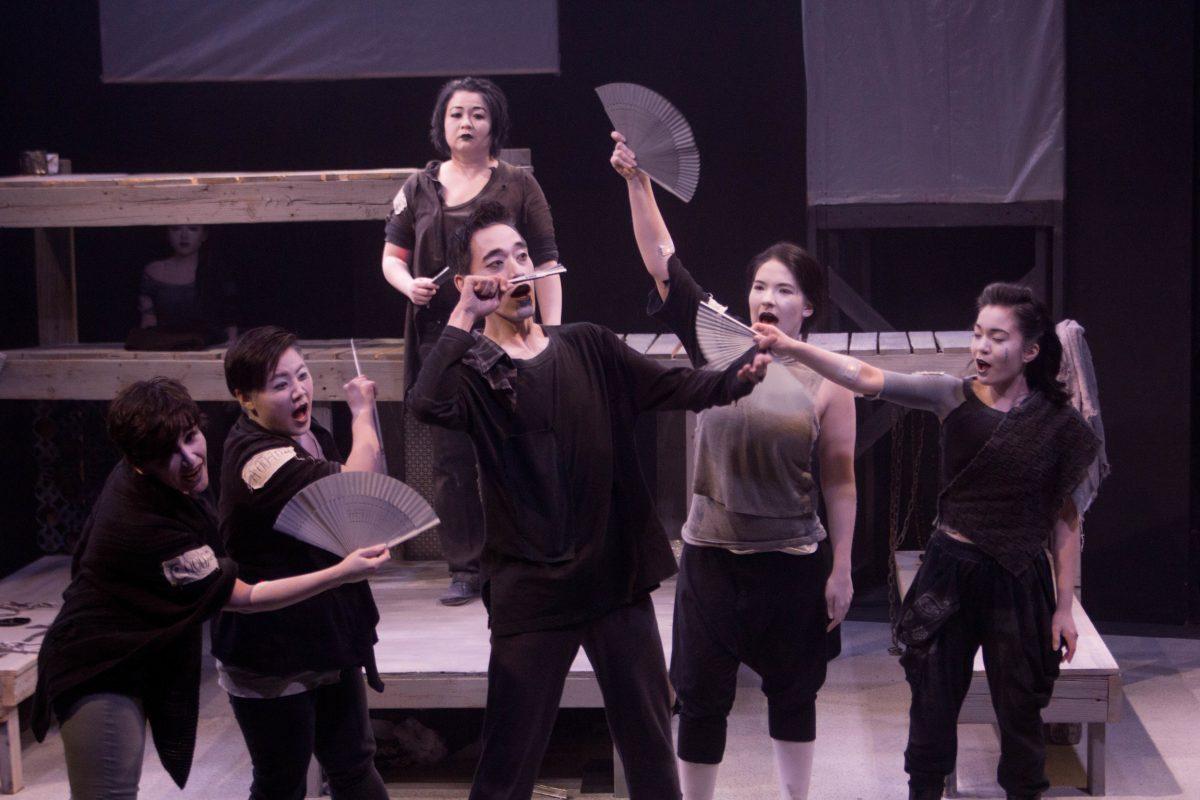
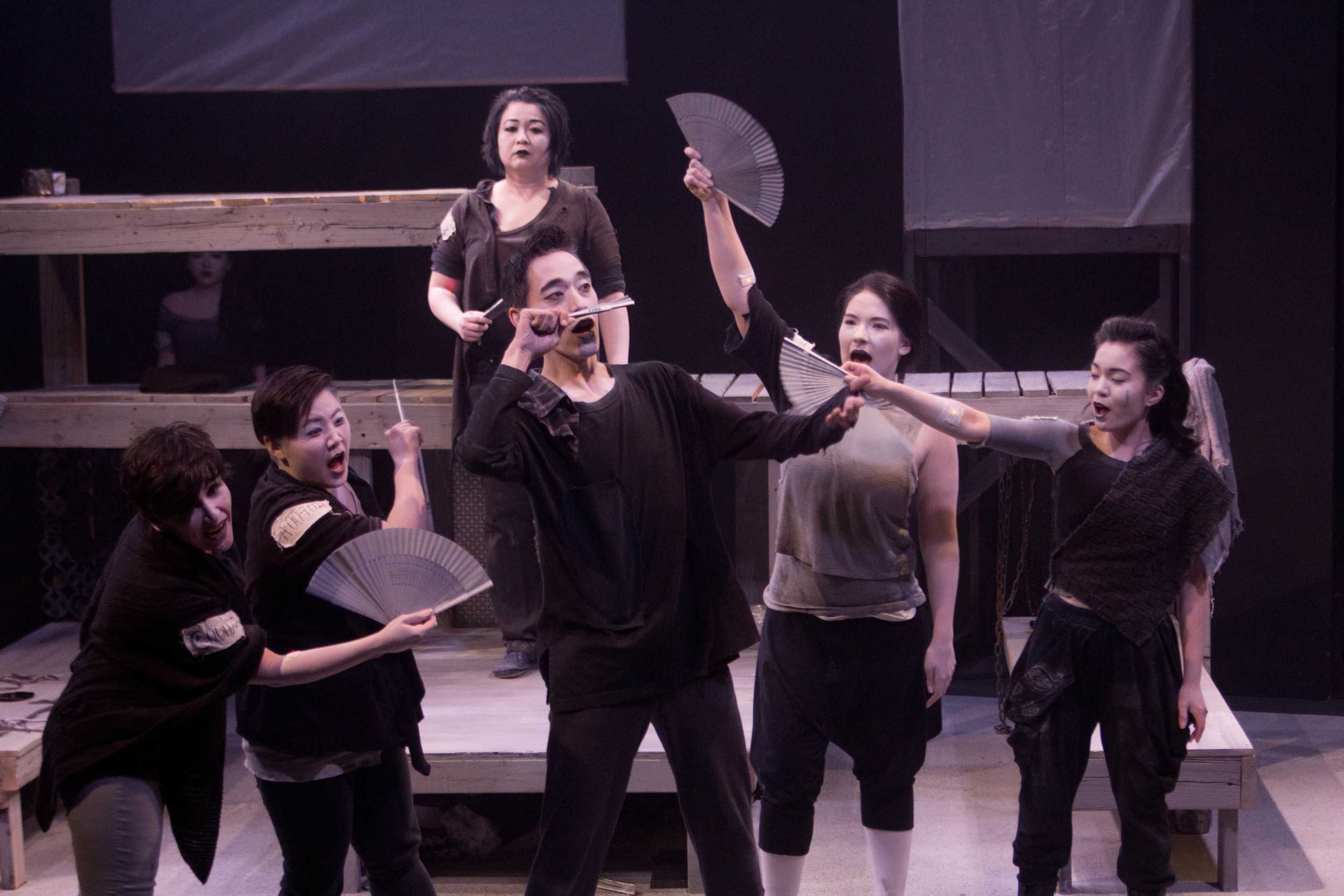
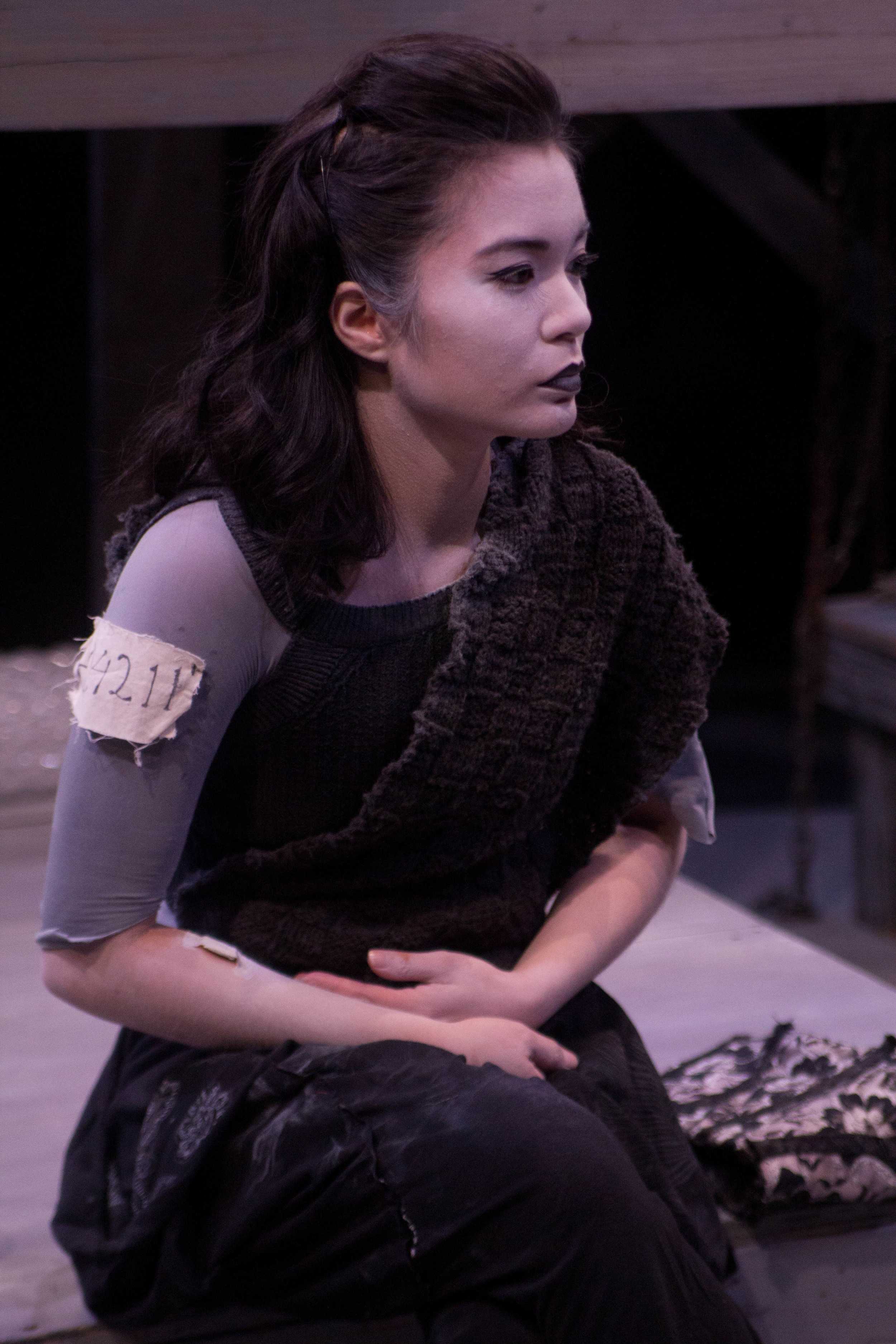
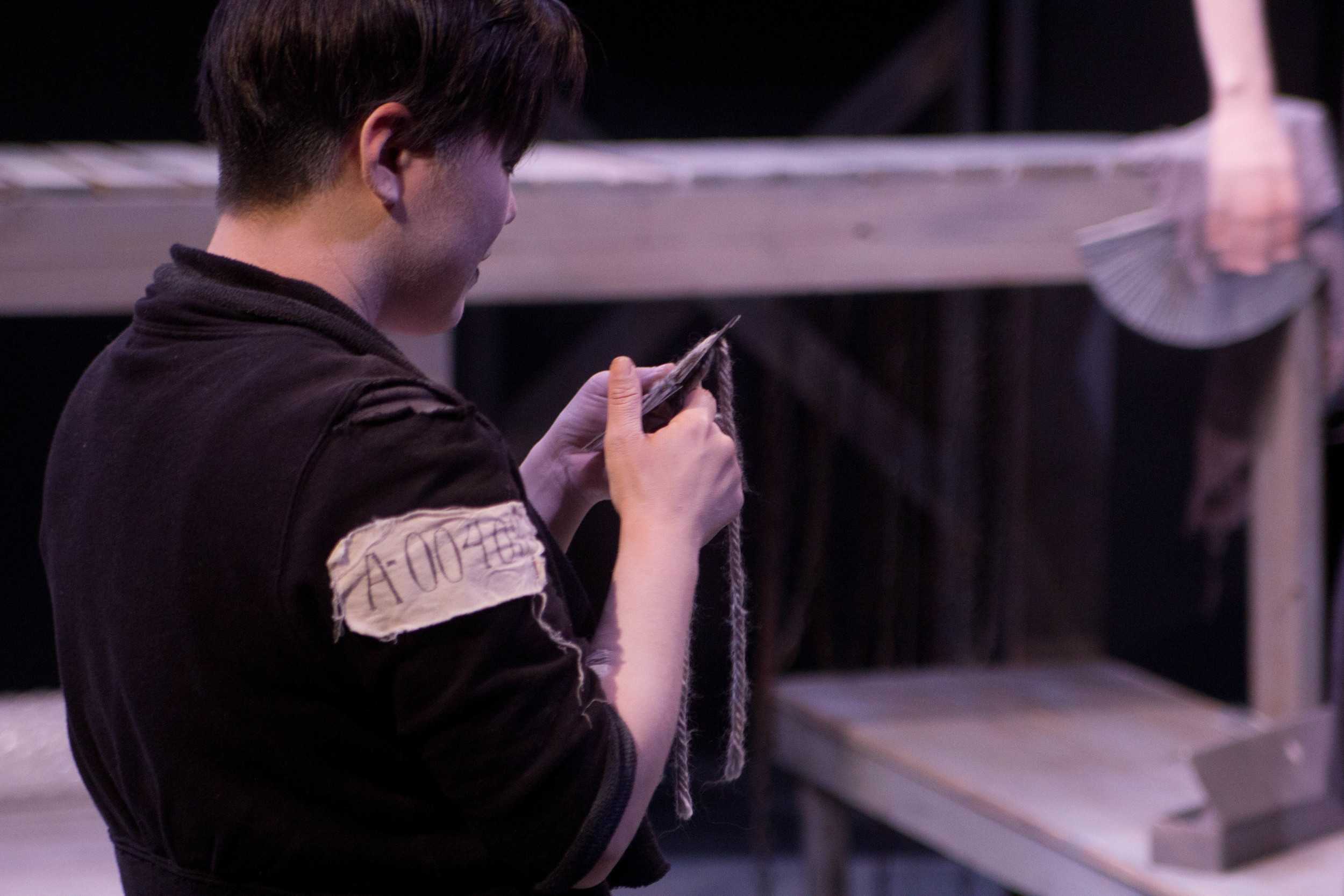
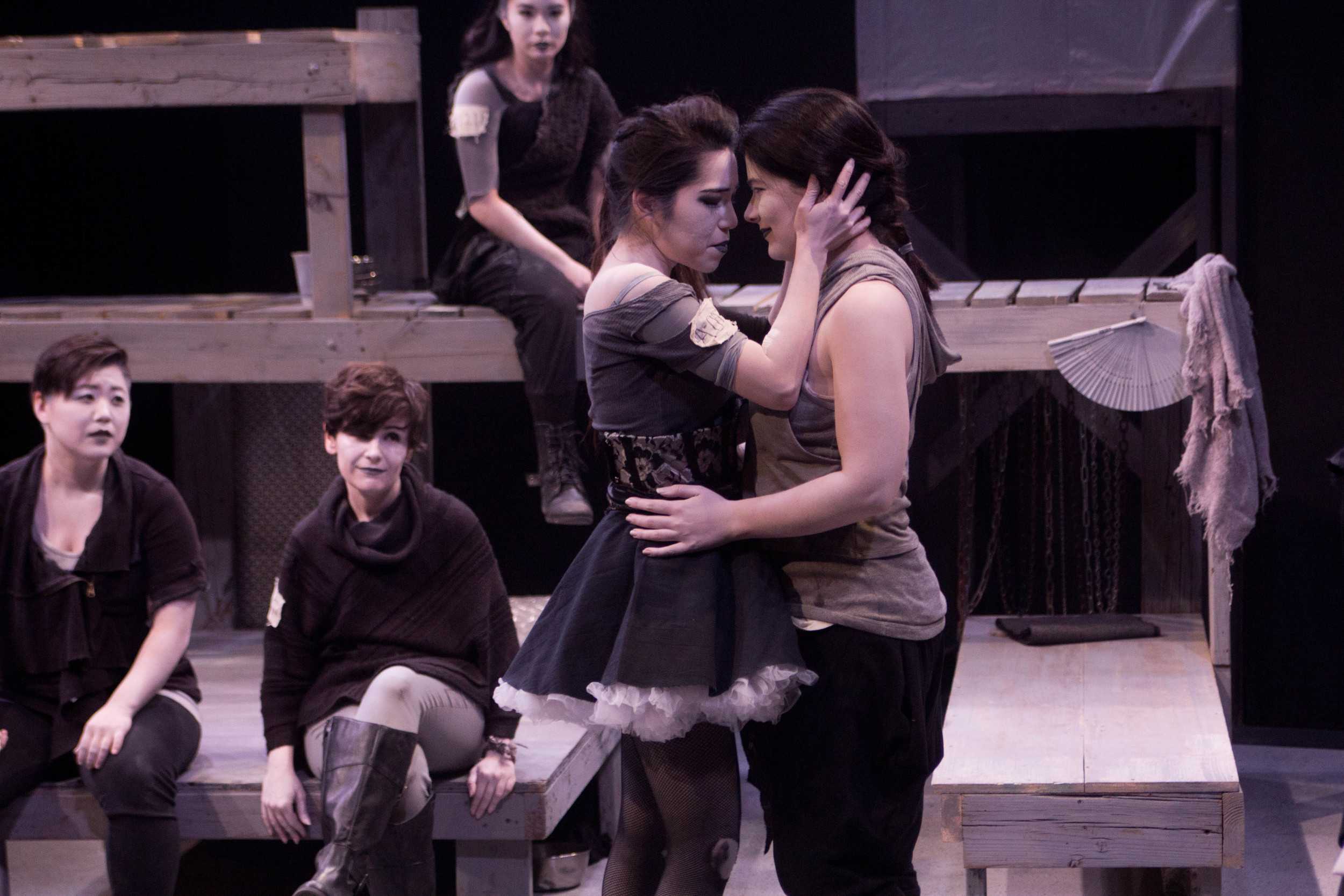












Elsa Ward • Feb 29, 2016 at 11:26 pm
Well written, thought provoking article! Makes me want to see this "reclaimed" version of the play.